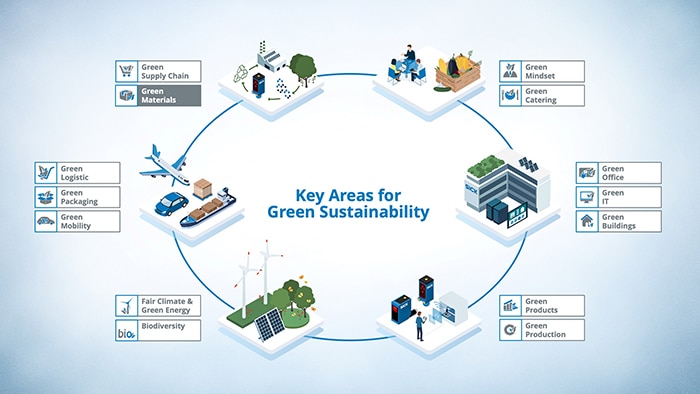Why SICK is taking action
Minerals, metals and fossil resources are limited on our planet and cannot be renewed. It is therefore essential to recover these materials and incorporate them into a recycling economy. Population growth is accompanied by increasing consumption, which further exacerbates the problem of resource scarcity.
A functioning recycling economy is also an important aspect when it comes to plastics, because the majority of these are not recycled. Plastics account for 85 percent of beach litter in the world. This can end up in the bodies of marine life, or even in humans. The negative consequences for human and animal health caused by microplastics in air, water and food is very difficult to estimate.
Responsible use of resources
SICK places great importance on the responsible use of limited raw materials. Minerals, metals and fossil resources can be recovered with the recycling economy. It is already common for metals to have some recycled content. In Europe, for example, around 52 percent of the aluminum produced comes from recyclates. With plastics, on the other hand, this is rarely the case in the industrial sector. In order to close the loop and minimize negative environmental impacts, SICK is investigating the use of recycled plastics and alternatives known as recyclates. Our aim is to use these in our own products.
